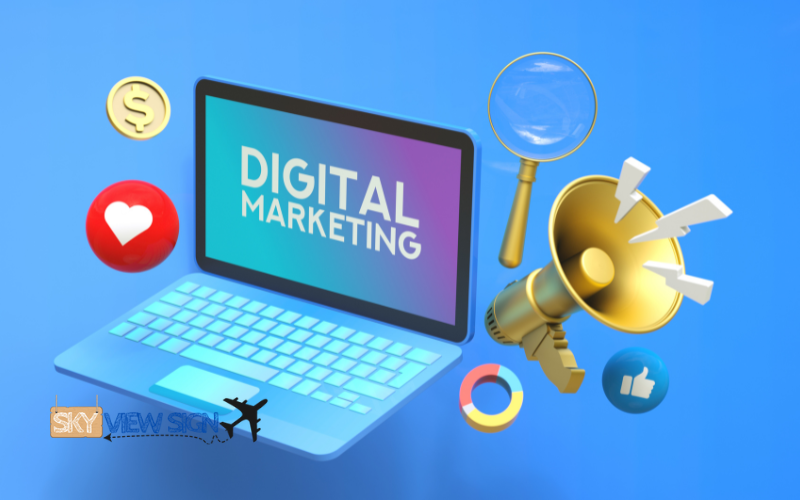The Complete Guide To Digital Marketing For Real Estate Agents

Digital marketing for real estate agents has come a long way in recent years. No longer is it an optional “nice to have” – it’s now a “must have” if you want to stay competitive and attract serious buyers and sellers. But with so many digital marketing channels and strategies to choose from, it can be tough to know where to start (or what to tackle next). That’s why we’ve put together this comprehensive guide to digital marketing for real estate agents.
If you want to learn more about digital marketing visit RS Softwire. In it, we’ll cover everything you need to know – from the basics of setting up your website and social media accounts, to more advanced strategies like search engine optimization (SEO) and lead generation. By the end of this guide, you’ll have all the information you need to create a successful digital marketing strategy for your real estate business.
What is digital marketing?
Digital marketing for real estate agents is the process of using online marketing channels to reach and engage with potential clients. It includes a wide range of activities, from creating and managing a website and social media accounts, to developing targeted online advertising campaigns and using data analytics to understand your audience.
By leveraging the power of the internet, real estate agents can reach a wider audience of potential buyers and sellers than ever before. With the right digital marketing strategy in place, you can connect with your target audience at the moment they’re searching for properties just like yours.
The first step in developing a successful digital marketing strategy is to create a strong foundation with a well-designed website. Your website should be easy to use and informative, providing potential clients with all the information they need about your business and services. Once your website is up and running, you can start expanding your reach by creating social media accounts and investing in targeted online advertising.
Data analytics is an important part of digital marketing for real estate agents. By understanding who your target audience is and what they’re looking for, you can fine-tune your digital marketing efforts to ensure that you’re delivering the right message to the right people at the right time.
The benefits of digital marketing for real estate agents
Digital marketing is a field that is constantly evolving, which can be both daunting and exciting for real estate agents. However, by understanding the basics of digital marketing, real estate agents can set themselves apart from the competition and better serve their clients.
The most important benefit of digital marketing for real estate agents is that it allows them to reach a wider audience with their listings. In the past, real estate agents were limited to marketing their listings through print media or word-of-mouth. However, with the advent of the internet, real estate agents can now reach a global audience with their listings. This means that they are more likely to find buyers for their properties, as well as sellers who are looking for properties in specific locations.
Another benefit of digital marketing for real estate agents is that it provides them with an opportunity to build relationships with potential clients. In the past, potential clients would have to physically visit an agent’s office in order to learn more about their services. However, with digital marketing, potential clients can contact an agent directly through email or social media. This allows agents to build rapport with potential clients before they ever meet in person.
Finally, digital marketing also allows real estate agents to track the results of their marketing efforts. In the past, it was difficult to gauge the effectiveness of traditional marketing techniques such as print advertisements or word-of-mouth referrals. However, with digital marketing, agents can use tools such as Google Analytics to track how many people are
What types of digital marketing strategies are there?
Digital marketing is a broad term that can be broken down into several different categories. Here are some of the most common types of digital marketing strategies used by real estate agents:
- Search Engine Optimization (SEO): This involves optimizing your website and blog content to rank higher in search engine results pages (SERPs), making it more likely that potential clients will find you when they search for relevant keywords.
- Pay-Per-Click (PPC) Advertising: This is a form of paid advertising, where you pay a fee each time someone clicks on one of your ads. PPC can be an effective way to get your website and listings in front of more people, but it’s important to remember that you’ll only get charged for clicks if those clicks lead to actual leads or customers.
- Social Media Marketing: This involves using social media platforms like Facebook, Twitter, and LinkedIn to promote your listings, open houses, blog articles, etc. It’s a great way to connect with potential clients and build relationships with people in your community.
- Email Marketing: This involves sending email newsletters or other promotional materials to potential clients in order to keep them updated on your latest listings and news. Email marketing can be an effective way to stay top-of-mind with potential clients and generate leads.
- Content Marketing: This is a broad category that includes everything from writing blog articles and creating infographics to shooting video tours of properties
How to create a digital marketing plan
A digital marketing plan is crucial for any business, but especially for real estate agents. It allows you to set clear goals and objectives, and track your progress over time. Not sure where to start? This complete guide will take you through the process of creating a digital marketing plan step-by-step, from setting your objectives to measuring your results.
First, let’s define what a digital marketing plan is. A digital marketing plan is a road map that businesses use to achieve their desired outcomes through online channels. This could include anything from website design and development, to search engine optimization (SEO), to content marketing and social media.
The first step in creating a digital marketing plan is to set your objectives. Ask yourself what you want to achieve with your online presence, and make sure these goals are SMART: specific, measurable, achievable, relevant, and time-bound. Once you have your objectives in place, you can move on to developing your strategy.
Your digital marketing strategy should be built around your customer’s needs and wants. What are they looking for when they come to your website or interact with your brand online? Your goal should be to meet them where they’re at and provide them with the information or resources they need.
To do this effectively, you’ll need to create buyer personas – fictional representations of your ideal customers based on real data about them. Once you have these personas fleshed out, consider what touch
Tips for real estate agents to succeed in digital marketing
As a real estate agent, you may be wondering how to make the most of digital marketing. Here are some tips to help you succeed:
-
Define your target audience
Who are you trying to reach with your digital marketing efforts? Keep this audience in mind as you create content and choose which channels to use.
-
Create compelling content
Your content should be interesting and informative, and it should address the needs of your target audience. Be sure to include calls to action that encourage your readers to take the next step, whether that’s contacting you for more information or scheduling a showing.
-
Use a variety of digital marketing channels
Don’t put all your eggs in one basket when it comes to digital marketing. Instead, use a mix of channels, including email, social media, and pay-per-click advertising. This will give you the best chance of reaching your target audience.
-
Track your results
Keep track of the results of your digital marketing efforts so you can adjust your strategy as needed. Pay attention to things like website traffic, leads generated, and conversions achieved. This data will help you fine-tune your approach and ensure that you’re getting the most out of your digital marketing investment.
Conclusion
Digital marketing is an essential tool for any real estate agent looking to stay ahead of the competition. By following the tips in this guide, you can create a strong online presence that will help you attract more clients and close more deals. Keep these principles in mind as you develop your own digital marketing strategy, and you’ll be well on your way to success.
